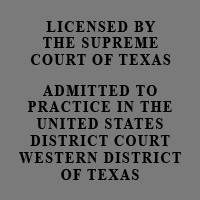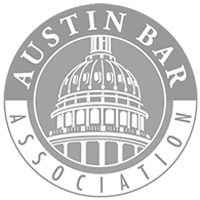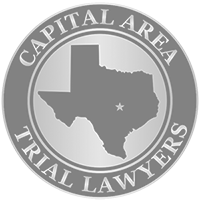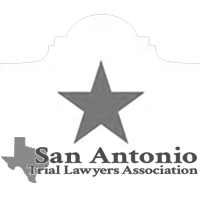Insider Trading Whistleblower Lawyer Helps Insider Trading Whistleblowers Collect Large Financial Rewards for Anonymously Exposing Stock Manipulation Schemes, Insider Trades, and other SEC Violations by Confidential Insider Trading Bounty Action Lawyer
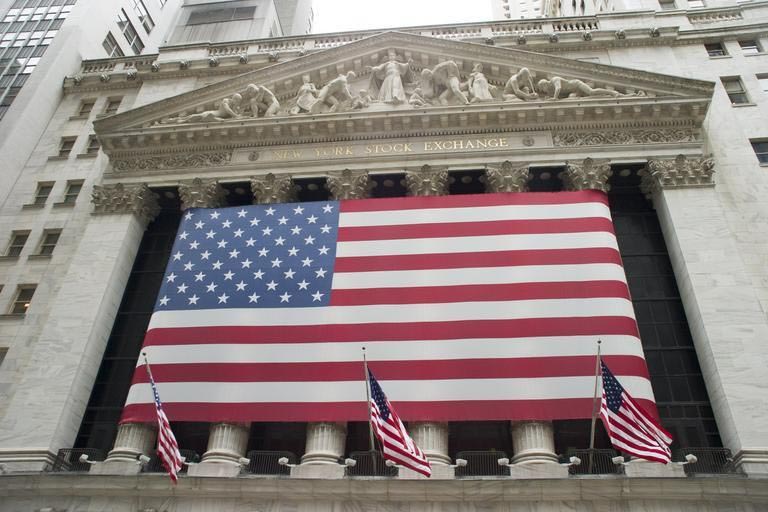
As an insider trading whistleblower lawyer, Jason S. Coomer represents whistleblowers. The SEC and CFTC offer large financial rewards to financial professionals and other individuals who anonymously expose insider trading schemes and other illegal conduct. Inside trade whistleblowers can anonymously expose these schemes through a lawyer, protect their identity, and collect large financial rewards. The Whistleblower must have original information of a significant insider trading scheme and must voluntarily expose the SEC violations. For more information on anonymous insider trade bounty actions, please feel free to contact insider trade whistleblower lawyer Jason S. Coomer via e-mail message or use our online form
First of all, some helpful FAQs to explain the basics about Illegal Insider Trading, Anonymously Exposing Insider Trade Schemes, and Anonymously Claiming Financial Rewards:
Q1: What is illegal Insider Trading??A1: Illegal Insider Trading is the illegal practice of using protected confidential non-public informaion for stock or commodities trades. Examples include: 1) lawmakers who use non-public information from intelligence briefings or regulatory actions and 2) corporate insiders with material confidential non-public information using this information to benefit or avoid losses (CEOs, accountants, lawyers, board members, employees, and auditors).
Q2: What laws and regulations prevent Insider Trading?A2: The SEC prosecutes insider trading under the general antifraud provisions of the Federal securities laws, most commonly Section 10(b) of the Securities Exchange Act of 1934 (“Exchange Act”) and Rule 10b-5, a broad anti-fraud rule promulgated by the SEC under Section 10(b). Section 10(b) declares it unlawful “[t]o use or employ, in connection with the purchase or sale of any security . . . any manipulative or deceptive device or contrivance in contravention of such rules and regulations as the Commission may prescribe as necessary or appropriate in the public interest or for the protection of investors”.
Q3: Can whistleblowers anonymously expose Illegal Insider Trading and earn financial rewards?A3: Yes, both the SEC and CFTC offer large financial rewards to financial professionals and other individuals who anonymously expose significant Illegal Insider Trading Schemes. The individual must have original information of a Insider Trade Scheme which is over $1 million.
Q4: How can a whistleblower anonymously expose Illegal Insider Trading?A4: Whistleblowers can anonymously expose Illegal Insider Trading Schemes through a lawyer to either the SEC or the CFTC.
Insider Trading Whistleblower Lawyer Performs Confidential Reviews of Anonymous Whistleblower Reward Cases
As an Insider Trading Whistleblower Lawyer, Jason Coomer, works with financial professionals, corporate officers, and investors to anonymously expose insider trading schemes. He helps these anonymous whistleblowers expose private equity fund insider trade schemes, stock manipulation schemes, executive illegal insider trade schemes, as well as other illegal conduct. Whistleblower Reward Lawyer, Jason S. Coomer, also commonly works with other lawyers to confidentially review executive insider trade whistleblower bounty actions, hedge fund insider trade whistleblower bounty actions, private equity fund fraud whistleblower bounty actions, false misleading information on a company's financial statements whistleblower bounty actions, false information on Securities and Exchange Commission (SEC) filings whistleblower bounty actions, stock manipulation scheme whistleblower bounty actions; embezzlement by stockbroker bounty actions; and other securities fraud whistleblower bounty actions.
Coronavisus Inside Trading Schemes by SEC Violations Whistleblower Attorney
Government officials including lawmakers and executive branch officials should not use classified non-public information for their own financial benefit. Further, these government officials should not share classified non-public information with their friends and family for financial benefit. As trillions of dollars in government stimulus and regulatory actions are being used to during the coronavirus pandemic, the SEC and CFTC are targeting government officials who use inside information for their own financial benefit. Both agencies also encourage financial professionals and other individuals with original knowledge of insider trading schemes to anonymously expose these SEC violations.
Financial Professional Whistleblowers Can Protect Their Identity and Career by Contacting a Confidential Insider Trade Whistleblower Lawyer, Confidential Securities Fraud Whistleblower Lawyer, or Confidential Financial Professional Whistleblower Lawyer Prior to Reporting Insider Trading and other Securities Fraud
For many financial professionals, it can be a difficult decision to step forward to expose executive insider trades, hedge fund insider trading, private equity fund fraud, false misleading information on a company's financial statements, false information on Securities and Exchange Commission (SEC) filings, stock manipulation schemes; embezzlement by stockbrokers; and other securities fraud. To protect these professionals, confidentiality safeguards have been put in place that allow the financial professional whistleblower to blow the whistle on securities fraud through an attorney. By contacting a confidential insider trading whistleblower lawyer, securities fraud whistleblower lawyer, or confidential financial professional whistleblower lawyer, the financial professional can protect their identity and career as well as identify any potential issues with a potential bounty action.
The SEC Enforcement Insider Trading Program
Insider trading has long been a high priority for the Commission. Approximately eight percent of the 650 average annual number of enforcement cases filed by the Commission in the past decade have been for insider trading violations. Among others charged in SEC insider trading cases were various hedge fund managers and traders involved in a $30 million expert networking trading scheme, a former Nasdaq Managing Director, a former Major League Baseball player, a Food and Drug Administration chemist, and a former corporate attorney and a Wall Street trader who traded in advance of mergers involving clients of the attorney’s law firm. The SEC also brought insider trading cases charging a Goldman Sachs employee and his father with trading on confidential information learned by the employee on the firm’s ETF desk, and charging a corporate board member of a major energy company and his son for trading on confidential information about the impending takeover of the company.
The Division also targets non-traditional cases involving the misuse or mishandling of material, non-public information. The SEC charged Merrill Lynch, Pierce, Fenner & Smith with fraud for improperly accessing and misusing customer order information for the firm’s own benefit. The Commission also censured broker-dealer Janney Montgomery Scott LLC for failing to enforce its own policies and procedures designed to prevent the misuse of material, nonpublic information. Charles Schwab Investment Management was charged for failing to have appropriate information barriers for nonpublic and potentially material information concerning an ultra-short bond fund that suffered significant declines during the financial crises. This deficiency gave other Schwab-related funds an unfair advantage over other investors by allowing the funds to redeem their own investments in the ultra short-bond fund during its decline. The Commission also charged Office Depot, Inc. and two of its executives for violating Regulation FD by selectively disclosing to certain analysts and institutional investors that the company would not meet its earnings.
The SEC Uses Market Abuse Data, Bounty Actions, and Inside Trade Whistleblower Lawyers to Detect Illegal Insider Trading.
To respond to emerging risks, the enforcement division has developed several new initiatives targeted at ferreting out inside trades, which have enhanced our effectiveness in this area. During our recent reorganization, the division established a market abuse unit, with an emphasis on various abusive market strategies and practices. An insider trading whistleblower lawyer can advise you on schemes that might be illegal.
The Market Abuse Unit has spearheaded the Division’s Automated Bluesheet Analysis Project, an innovative investigative tool that utilizes the “bluesheet” database of more than one billion electronic equities and options trading records obtained by the Commission in the course of insider trading investigations over the past 20 years. Using newly developed templates, Enforcement staff are able to search across this database to recognize suspicious trading patterns and identify relationships and connections among multiple traders and across multiple securities, generating significant enforcement leads and investigative entry points. While still in its early stages of development, this new data analytic approach already has led to significant insider trading enforcement actions that were not the subject of an SRO referral, informant tip, investor complaint, media report, or other external source.
As part of the reorganization, the Division also established a cooperation program to encourage key fact witnesses to provide valuable information. Insider trading investigations are extremely fact-intensive. Enforcement staff undertake the often painstaking work of collecting and analyzing trading data across equity and options markets, analyzing communications (email, telephone calls and instant messages, among others) and analyzing market-moving events (e.g., announcements of corporate earnings, product development, and acquisitions and mergers) to identify persons who may have engaged in insider trading or who may have information about such activity. Our new cooperation program is a valuable tool that can help us break open an insider trading investigation earlier in the process, thereby preserving resources. We are already seeing the effectiveness of the cooperation program in our insider trading cases and expect this trend to continue as more cooperators come forward in our investigations.
The SEC Works With The FBI, DOJ, and other Agencies on Insider Trade Violation Cases
With an aggressive investigative approach that includes early coordination with the FBI, Department of Justice, and other law enforcement agencies, we have been able to identify potential cooperators who may assist criminal authorities with their covert investigative techniques, helping amass critical evidence in numerous insider trading investigations. Our work with certain SROs has provided valuable early tips, helping us mitigate the harm from insider trading schemes by freezing the illicit proceeds before funds are moved to offshore jurisdictions. Law of Insider Trading
The SEC Typically Prosecutes Insider Trading Under Section 10 (b) of the Securities Exchange Act
There is no express statutory definition of the offense of insider trading in securities. The SEC prosecutes insider trading under the general antifraud provisions of the Federal securities laws, most commonly Section 10(b) of the Securities Exchange Act of 1934 (“Exchange Act”) and Rule 10b-5, a broad anti-fraud rule promulgated by the SEC under Section 10(b). Section 10(b) declares it unlawful “[t]o use or employ, in connection with the purchase or sale of any security . . . any manipulative or deceptive device or contrivance in contravention of such rules and regulations as the Commission may prescribe as necessary or appropriate in the public interest or for the protection of investors.” Rule 10b-5 broadly prohibits fraud and deception in connection with the purchase and sale of securities. As the Supreme Court has stated, “Section 10(b) and Rule 10b-5 prohibit all fraudulent schemes in connection with the purchase or sale of securities, whether the artifices employed involve a garden type variety of fraud, or present a unique form of deception,” because “[n]ovel or atypical methods should not provide immunity from the securities laws.”
There are two principal theories under which the SEC prosecutes insider trading cases under Section 10(b) and Rule 10b-5. The “classical theory” applies to corporate insiders – officers, directors, and employees of a corporation, as well as “temporary” insiders, such as attorneys, accountants, and consultants to the corporation. Under the “classical theory” of insider trading liability, a corporate insider violates Section 10(b) and Rule 10b-5 when he or she trades in the securities of the corporation on the basis of material, nonpublic information. Trading on such information qualifies as a “deceptive device” under Section 10(b), because “a relationship of trust and confidence [exists] between the shareholders of a corporation and those insiders who have obtained confidential information by reason of their position with that corporation.” That relationship “gives rise to a duty to disclose [or to abstain from trading] because of the ‘necessity of preventing a corporate insider from . . . tak[ing] unfair advantage of . . . uninformed . . . stockholders.’”
Corporate "Outsiders" Can Be Liable for Insider Trading
The Supreme Court has recognized that corporate “outsiders” can also be liable for insider trading under the “misappropriation theory.”9 Under this theory, a person commits fraud “in connection with” a securities transaction, and thereby violates Section 10(b) and Rule 10b–5, when he or she misappropriates confidential and material information for securities trading purposes, in breach of a duty owed to the source of the information. This is because “a fiduciary's undisclosed, self-serving use of a principal's information to purchase or sell securities, in breach of a duty of loyalty and confidentiality, defrauds the principal of the exclusive use of that information.” The misappropriation theory thus “premises liability on a fiduciary-turned-trader's deception of those who entrusted him with access to confidential information.” Under either the classical or misappropriation theory, a person can also be held liable for “tipping” material, nonpublic information to others who trade, and a “tippee” can be held liable for trading on such information.
A common law principle is that employees owe a fiduciary duty of loyalty and confidence to their employers. In addition, employees often take on contractual duties of trust or confidence as a condition of their employment or by agreeing to comply with a corporate policy. Accordingly, employees have frequently been held liable under the misappropriation theory for trading or tipping on the basis of material non-public information obtained during the course of their employment. This includes prosecution of federal employees who, in breach of a duty to their employer, the federal government, trade or tip on the basis of information they obtained in the course of their employment. For example, the SEC recently brought insider trading charges against a Food and Drug Administration employee alleging that he violated a duty of trust and confidence owed to the federal government under certain governmental rules of conduct when he traded in advance of confidential FDA drug approval announcements.
SEC Charges Securities Professionals and Traders in International Hedge Fund Portfolio Pumping Scheme
On Feb. 24, 2011, the Securities and Exchange Commission charged two securities professionals, a hedge fund trader, and two firms involved in a scheme that manipulated several U.S. microcap stocks and generated more than $63 million in illicit proceeds through stock sales, commissions and sales credits. The SEC alleged that Florian Homm of Spain and Todd M. Ficeto of Malibu, Calif., conducted the scheme through their Beverly Hills, Calif.-based broker-dealer Hunter World Markets Inc. (HWM) with the assistance of Homm’s close associate Colin Heatherington, a trader who lives in Canada. They brought microcap companies public through reverse mergers and manipulated upwards the stock prices of these thinly-traded stocks before selling their shares at inflated prices to eight offshore hedge funds controlled by Homm. Their manipulation of the stock prices allowed Homm to materially overstate by at least $440 million the hedge funds’ performance and net asset values (NAVs) in a fraudulent practice known as “portfolio pumping.”
Insider Trade Bounty Action Lawyer, Jason Coomer, Commonly Works With Whistleblowers and Lawyers From Throughout The United States and The World on Whistleblower Reward Cases
As a confidential inside trade whistleblower lawyer from Texas, Jason S. Coomer, commonly works with other powerful financial fraud and securities fraud whistleblower lawyers to handle large Securities Fraud Whistleblower Lawsuits, International Whistleblower Lawsuits, Medicare Fraud Whistleblower Lawsuits, Defense Contractor Fraud Whistleblower Lawsuits, Government Contractor Fraud Whistleblower Lawsuits, and other confidential whistleblower reward lawsuits. If you are the original source with special knowledge of fraud and are interested in learning more about a whistleblower reward lawsuit, please feel free to contact confidential insider trade bounty Action Lawyer Jason Coomer via e-mail message.
Feel Free to Contact Us with any Questions
Associations
